If you are confused by the term over/under or looking for an optimal totals betting strategy, then you have come to the right place. We answer every over/under question you can think of and highlight our best tips and strategies for totals betting.
What is Over/Under in Betting?
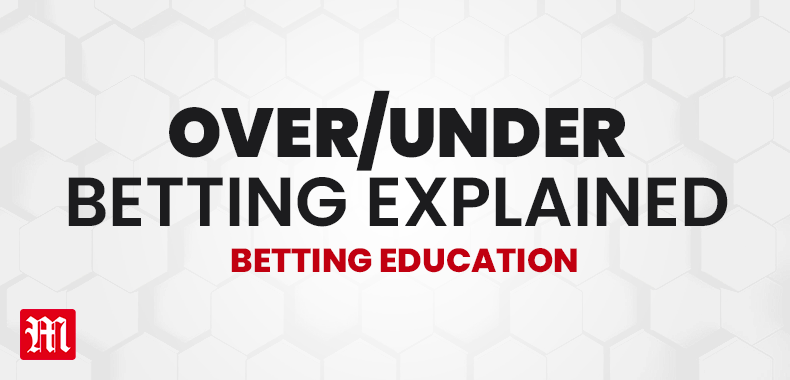
What is over/under in betting? A complete guide on totals betting in Canada
What Does Over/Under Mean?
The term over/under is used in a type of betting know as totals betting. This is when you wager on the total number of points scored in an event between both sides combined.
Sportsbooks will come up with a fair number that they believe the opposing sides will combine to score and give you the opportunity to choose over or under on this number. You can place a bet on the two teams combining to score more runs, or the two teams combining to score less runs than the given number.
While this is the most common form of over/under bet, you can find hundreds of different over/under options at Canadian betting sites. This includes specific team totals, the number of yards a running back might run for, the number of strikeouts a pitcher may record, first or second half totals, etc. The options are endless, so don’t limit yourself to the basic options!
Over/Under Betting Explained
Let’s use the Super Bowl LVII as an example. The over/under was set at 51.5 meaning both the Kansas City Chiefs and the Philadelphia Eagles would have to score at least 52 points for the over to win. Anything less, and those who wagered on the under would receive a payout.
There is no way for the teams to combine to score 51.5 points, meaning there will be a winner and a loser if the event is completed. Let’s say the total was placed at 51 and both teams combined to score exactly 51 points – then all over/under wagers would be returned, and the bet would be ruled a “push.”
How to Bet the Over/Under?
To place an over/under bet, you must first determine how many points you believe will be scored or how many times you believe a player will record a specific statistic. Once you have figured that out, follow these simple steps.
- Open your sportsbook of choice and log into your account

- Click on the event you wish to wager on
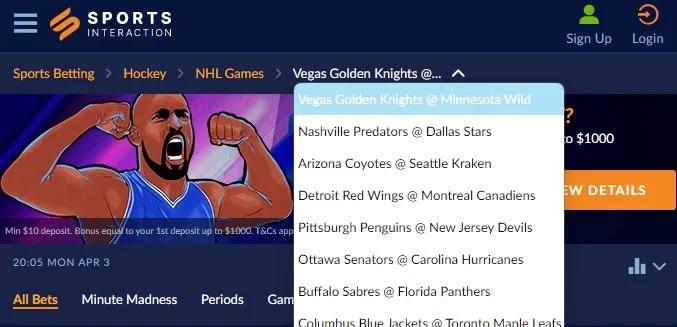
- The odds for the over/under will be displayed alongside the moneyline and the point spread
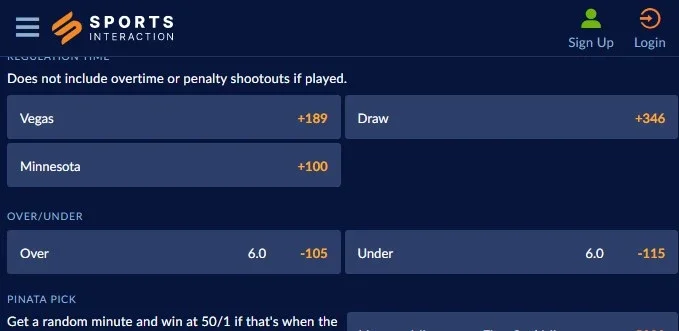
- Click on either O (over) or U (under) based on your opinion
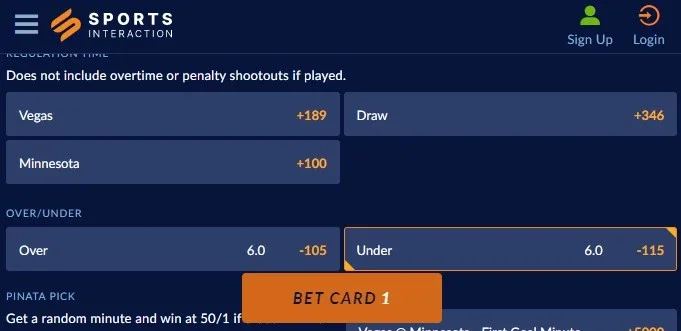
- Select the amount you wish to wager and confirm the bet
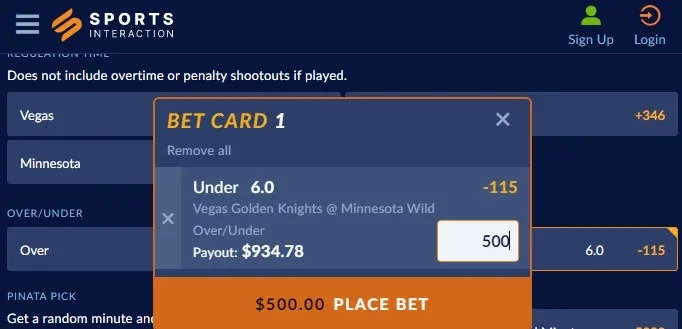
What Is the Payout on an Over/Under Bet?
Totals bets are treated similarly to the point spread. In theory, the over and the under should each have a 50% chance of winning, but the sportsbook needs to make a profit somehow. This is where the vigorish comes into play. This a cut that a sportsbook takes for accepting your wager. The standard vigorish amount is 10%, which would place the over/under odds at -110 for most sporting events.
At odds of -110, if you place a $110 wager you will profit $100. A $55 wager will profit you $50, a $11 wager will profit you $10, etc.
It is important to note that your payout does not represent your net profit from your wager. Payouts include the amount you steaked in the total you receive back, meaning you need to subtract your wager from your payout to figure out your net profit.
Ex. A $110 bet at odds of -110 will receive a payout of $210. Your net profit would therefore be $100.
Basketball and Football over/under odds will be seen at -110 more often than not, however, lower scoring event such as Baseball and hockey tend to have more variance.
Say the total for a baseball game is set at 7.5, but the odds makers view the game as more likely to come to closer to 7 than 8. This would cause the odds to shift to something similar to -120 for the under and +100 for the over. The sportsbook’s 10% vigorish remains intact, however, you will receive a smaller payout for wagering on the under and a larger payout for wagering on the over.
Another reason the odds may shift is due to the amount of money placed on one side. The sportsbook’s goal is to have even money distributed on each side of the over/under. If most customers have wagered on the over, the odds will shift, creating a larger payout for wagering on the under and enticing you to bet this way.
How Is the Over/Under Determined?
The process of creating an over/under total is complicated and oddsmakers take numerous factors into account. The offensive and defensive strengths of each side is not the only consideration. Weather, injuries, lineup decisions, and past results can also play significant factors. In baseball for example, the direction the wind is blowing on that particular day will factor into how far the ball travels, which often coincides with the number of runs scored.
The amount of money being wagered on either side can also affect the total. As we mentioned before, the goal for a sportsbook is to have even money wagered on each side. If significantly more money is being wagered on the over, oftentimes the sportsbook will increase the total to entice more bettor to wager on the under.
Optimal Strategy for Betting on the Over/Under
.webp) Betting on the over/under can be incredibly random and difficult to profit on which is by design. Sportsbooks set a fair number designed to be a 50/50 chance to have an even amount of money wagered on each side.
Betting on the over/under can be incredibly random and difficult to profit on which is by design. Sportsbooks set a fair number designed to be a 50/50 chance to have an even amount of money wagered on each side.
That being said, bettors have had slightly more success betting on the under over past five years. Betting on the under is generally viewed as boring since it is human nature to root for more points in a match. Offensive success creates excitement, and that is what bettors are searching for in the first place when placing wagers.
If you are just looking to have fun and boost your viewing experience, then by all means, hammer the over – sports betting is supposed to be fun at the end of the day. If you are a more serious sports gambler however, this creates opportunity to profit by wagering on the under.
We aren’t saying just bet the under blindly every time but take advantage of the statistics and place slightly more bets on the under knowing that you can profit in the long run.
When placing an over/under bet, we recommend taking all factors into consideration in order to make an educated decision. We have listed our best tips and strategies for you here:
- Always check the injury report
- Always check the weather report and factor that into your decision
- Make sure you know a team’s starting lineup before placing bet
- Follow the trends and place a higher value on recent statistics than you normally would in a team’s evaluation
- Factor in past head-to-head matchups
- Look at matchup specific statistics (How a team performs against left-handed pitching, how a team performs against a specific pitcher, etc.)
Some of our favorite bets involve player props and first half team totals. It is much easier to research a specific player than research an entire team. Some of our favourite over/under prop bets include total receptions, total strikeouts, and powerplay points scored.
Conclusion
Overall, over/under bets can be random, but there are ways to profit if you do you research. Don’t limit yourself to the standard total’s, make sure to take advantage of the options you have available and find the best bets possible. We understand placing bets on the under can be boring, but try not to completely eliminate them as research show they are slightly more profitable.
Over/Under FAQ’s
What does over/under mean?
Over/under refers to a type of totals bet. It is one of the most commonly placed bets along with the point spread and moneyline. Sportsbooks give a number for combined points scored in a single match, and you have the option to wager on the true total being less or more than the given number.
Can you place on over/under bet after a game has started?
Yes. Over/under options are provided by sportsbooks who offer live betting. Totals are adjusted as the game progresses based on the results.
Is it better to bet on the over or the under?
Yes. Overtime points will count towards over/under bets as well as most betting markets such as player props and team totals.
What does the term 0.5 refer to?
Oddsmakers commonly set the over/under to point totals that cannot be achieved to avoid wagers resulting in a “push.” 0.5 is a common total given for prop bets such as home runs, or touchdowns scored. You only need the player to record the statistic once to receive a payout (One touchdown, one home run, etc.).
Do I still receive a payout if the over/under is the exact number?
No. If an even number total is given (50 total points) and the number hits exactly, your money will be returned to your account and the wager will be deemed a “push.”
Jake is a freelance sports journalist who specializes in betting on Major League Baseball. In his free time, Jake enjoys skiing, watching esports, and competing in fantasy sports leagues. You can find Jake discussing everything you need to know about Major League Baseball each week at the 4-6-3 Podcast.






























.svg)










